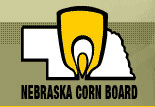The Nebraska Corn Board is giving the state’s dairy industry a well-deserved pat on the back for increasing production in a challenging year.
 According to the latest state ag statistics, the Nebraska dairy industry produced more than 1.2 billion pounds of milk last year, an increase over the previous year.
According to the latest state ag statistics, the Nebraska dairy industry produced more than 1.2 billion pounds of milk last year, an increase over the previous year.
“The number of dairy cows in Nebraska totaled some 61,000 head, which is an increase over the prior year. Growth in the dairy industry is something few states can show, as the dairy markets struggled nationally and many states saw their cow herd numbers decline,” said Kelsey Pope, promotion coordinator with the Nebraska Corn Board. “We’re fortunate to have gained cows, as dairy farms provide a number of good jobs and gives a boost to the local economy. With June being Dairy Month, this is something to celebrate – perhaps with a tall glass of milk. The state’s dairy receipts totaled about $172 million last year, but the sector’s total impact is considerably higher because so many dollars circulate several times through the local economy. Everything from a strong tax base, to feed, veterinary care, equipment, trucking, milk processing and more, a strong dairy sector is good for the state.”
The Nebraska Corn Board has a publication to help dairy producers utilize corn co-products like distillers grains. The Utilization of Corn Co-Products in the Dairy Industry is available by contacting the board or on-line at NebraskaCorn.org.








